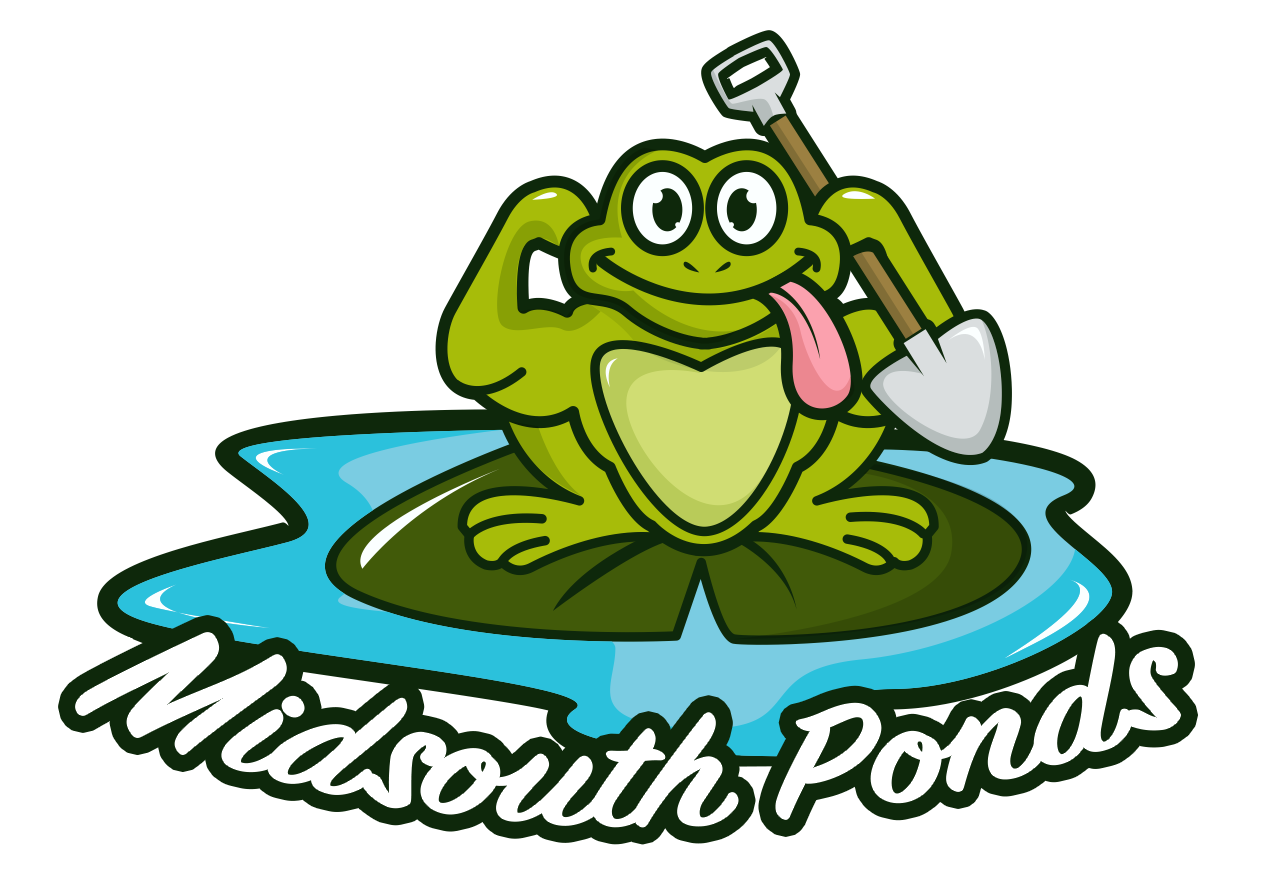Many factors come into play when deciding whether fish belong in your Memphis water garden. As you contemplate adding these aquatic creatures to your outdoor oasis, it is crucial to consider the impact they will have on the ecosystem and overall balance of your garden. In this blog post, we will explore the benefits and drawbacks of incorporating fish into your water garden, helping you make an informed decision that aligns with your environmental values and garden goals.
Key Takeaways:
- Consider the size and type of fish: Make sure your Memphis water garden is large enough and has proper conditions to support the fish you want to include.
- Maintain good water quality: Regularly test and maintain the water quality in your water garden to ensure a healthy environment for any fish you decide to add.
- Research and consult with experts: Before adding fish to your water garden, do thorough research and seek advice from professionals to ensure the well-being of the fish.
Benefits of Having Fish in Your Memphis Water Garden
Aesthetic Appeal
For your Memphis water garden, adding fish can enhance the beauty and charm of your outdoor space. The graceful movements of colorful koi or vibrant goldfish can create a mesmerizing focal point, adding life and movement to your garden oasis. Watching the fish swim elegantly through the water can bring a sense of tranquility and relaxation to your surroundings, making your water garden a peaceful retreat for you to enjoy.
Ecological Balance
Fish play a crucial role in maintaining the ecological balance of your Memphis water garden. They help control mosquito larvae and other pests, keeping the water clean and free of unwanted insects. Additionally, fish contribute to the nutrient cycle in the water, generating waste that acts as a natural fertilizer for aquatic plants. This symbiotic relationship between fish and plants helps create a thriving ecosystem in your water garden, promoting healthy growth and balance within the environment.
A well-balanced ecosystem in your water garden can reduce the need for chemical treatments and artificial interventions, creating a more sustainable and environmentally friendly habitat for both your fish and plants. By incorporating fish into your Memphis water garden, you are not only enhancing its beauty but also supporting the natural processes that keep your garden flourishing.
Types of Fish Suitable for Memphis Water Gardens
The choice of fish for your Memphis water garden is an important decision, as it can impact the overall ecosystem and maintenance requirements. Different types of fish have varying temperature and feeding needs, so selecting the right ones for your specific setup is crucial. Below are some options for fish that thrive in Memphis water gardens:
Cold-Water Fish
An ideal choice for Memphis water gardens, cold-water fish are well-suited to the climate in this region. These fish, such as goldfish and koi, can survive in cooler water temperatures and are relatively low-maintenance. They add a vibrant pop of color and graceful movement to your water garden.
Tropical Fish
Gardens in Memphis can also support tropical fish species, although they require a bit more attention to thrive. Tropical fish like guppies and swordtails are known for their bright colors and lively personalities, making them a popular choice among water garden enthusiasts. These fish prefer warmer water temperatures and need proper filtration and nutrition to stay healthy.
This section will give more insight into the best practices for keeping tropical fish in your Memphis water garden.
Native Fish Species
Tropical fish are not the only option for your Memphis water garden; you can also consider native fish species that are well-adapted to the local climate. Species like sunfish and bass can add a natural touch to your water garden while requiring minimal maintenance. Plus, native fish species can help maintain the ecological balance in your water feature.
Plus, this section will explore the benefits of incorporating native fish species into your Memphis water garden.
Considerations for Introducing Fish to Your Water Garden
Water Quality
The water quality in your Memphis water garden is crucial for the health and well-being of any fish you introduce. Ensure that the water is free from contaminants and pollutants by regularly testing it and maintaining proper filtration systems. Fish are sensitive to changes in water conditions, so it’s necessary to keep the water clean and well-oxygenated.
Space and Habitat Requirements
Fish in your water garden require adequate space and suitable habitats to thrive. Different species have varying space needs, so research the specific requirements of the fish you plan to introduce. Provide enough vegetation and hiding spots for the fish to feel secure and create a balanced ecosystem.
Considering the space and habitat requirements for fish in your water garden is crucial for their overall well-being. By providing ample space and suitable habitats, you can encourage natural behaviors and ensure a harmonious environment for the fish to live in.
Feeding and Maintenance
Your fish in the water garden will need appropriate feeding and regular maintenance to stay healthy. Choose high-quality fish food tailored to the species you have and avoid overfeeding, which can lead to water quality issues. Additionally, schedule regular maintenance tasks such as cleaning filters and removing debris to keep the ecosystem in balance.
To maintain a healthy balance in your Memphis water garden and ensure the well-being of the fish, it’s necessary to establish a feeding and maintenance routine. By feeding your fish appropriately and staying on top of regular maintenance tasks, you can create a thriving aquatic environment for them to enjoy.
Potential Drawbacks of Having Fish in Your Water Garden
Predator Attraction
Despite the beauty and tranquility fish can add to your water garden, having them can also attract predators. Birds, raccoons, and other wildlife may see your fish as a tasty treat, disrupting the ecosystem you’ve carefully cultivated. This can lead to stress for your fish and potential harm to other aquatic life in your garden.
Algae Growth
An overpopulation of fish in your water garden can lead to excessive waste production, which in turn can fuel algae growth. Algae blooms can cloud the water, detracting from the visual appeal of your garden and potentially suffocating aquatic plants by blocking sunlight and depleting oxygen levels.
Having a balanced fish population and ensuring proper filtration and maintenance can help mitigate algae growth in your water garden.
Disease and Parasite Risks
To keep your fish healthy and thriving in your water garden, you need to be aware of the risks of disease and parasites. Crowded or stressed fish are more susceptible to illnesses, which can quickly spread throughout your aquatic ecosystem. It’s vital to monitor your fish regularly for signs of sickness and take prompt action to prevent outbreaks.
With diligent care and attention, you can enjoy the beauty and serenity of fish in your water garden while minimizing the potential drawbacks they may bring.
Creating a Fish-Friendly Environment
Plant Selection and Arrangement
FishFriendly When designing a water garden that is welcoming for fish, consider the types of plants you choose and how you arrange them. Opt for a variety of plants that provide shelter, oxygen, and shade for your fish. Submerged plants like anacharis and hornwort can offer hiding spots and improve water quality. Floating plants such as water lettuce and water hyacinth can help regulate the temperature and provide cover for your fish.
Water Feature Design
Creating a well-thought-out water feature is important for creating a fish-friendly environment in your Memphis water garden. Think about incorporating various depths in your pond to cater to different fish species and their needs. Including shallow areas along the edges will help attract fish that prefer these conditions. Additionally, adding features like rocks, logs, or caves can create additional hiding spots for your fish, reducing stress and promoting a natural habitat.
This careful consideration of water feature design not only enhances the aesthetics of your water garden but also plays a crucial role in creating a harmonious environment for your fish to thrive.
Maintenance and Upkeep
Selection Regular maintenance is key to ensuring a healthy and fish-friendly water garden. Regularly monitor the water quality, pH levels, and oxygen levels to ensure they are within the suitable range for fish. Clean your pond regularly to remove debris and prevent the buildup of harmful bacteria. Additionally, keep an eye out for any signs of disease or distress in your fish and address them promptly to maintain a thriving aquatic ecosystem.
With proper maintenance and upkeep, you can enjoy a vibrant and flourishing water garden that provides a safe and enjoyable habitat for your fish.
Fish Care and Management
After deciding to add fish to your Memphis water garden, it’s vital to understand how to care for them properly. Fish can add life and beauty to your pond, but they also require attention and maintenance to thrive in their new environment.
Feeding and Nutrition
One of the vital aspects of fish care is ensuring they receive proper nutrition. You can feed your fish a diet of commercially available fish food designed specifically for pond fish. Be mindful not to overfeed your fish, as uneaten food can accumulate at the bottom of the pond and create water quality issues. Additionally, consider supplementing their diet with treats like bloodworms or brine shrimp for added variety and nutrition.
Health Monitoring and Disease Prevention
With regular observation, you can monitor your fish for any signs of illness or distress. Look out for changes in behavior, such as decreased activity or appetite, as these can indicate underlying health issues. Additionally, keep an eye on the water quality of your pond, as poor water conditions can stress your fish and make them more susceptible to diseases.
Plus, it’s vital to practice disease prevention to keep your fish healthy. Quarantine any new fish before introducing them to your water garden to prevent the spread of potential diseases. Regularly clean your pond and maintain proper filtration to reduce the risk of infections. If you notice any sick fish, promptly isolate them for treatment to prevent the spread of illness to the rest of your fish population.
Breeding and Population Control
Management of fish breeding and population control is crucial to maintaining a healthy balance in your water garden. Some fish species can reproduce rapidly, leading to overpopulation issues that can strain your pond’s ecosystem. To prevent overcrowding, consider introducing fish species that are less prolific breeders or implement population control measures.
Control the fish population in your water garden by periodically thinning out excess fish to prevent overcrowding and competition for resources. You can donate or relocate the excess fish to other ponds or seek advice from local fish and wildlife agencies on responsible population control methods. By managing the fish population in your water garden, you can ensure a sustainable and harmonious environment for both your fish and aquatic plants.
Conclusion
Drawing together the information presented in this article, it is important to consider whether fish truly belong in your Memphis water garden. While fish can add beauty and interest to your pond, they also come with responsibilities and considerations. You should carefully assess the size of your pond, its ecosystem, and your willingness to maintain water quality before introducing fish to your water garden.
Bear in mind, the decision to include fish in your water garden should be made thoughtfully and responsibly. By following proper guidelines and being mindful of the impact fish can have on your pond, you can create a balanced and thriving aquatic environment that both you and your fish can enjoy.
Q: Is it safe to keep fish in my Memphis water garden?
A: Yes, it is safe to keep fish in your Memphis water garden as long as the water quality is properly maintained. Fish can bring life and movement to your water garden, enhancing its overall beauty.
Q: What types of fish are suitable for a Memphis water garden?
A: Common types of fish that are suitable for a Memphis water garden include Koi, Goldfish, and Mosquito Fish. These fish are well adapted to outdoor water gardens and can thrive in various climates.
Q: How can I ensure the health and well-being of fish in my Memphis water garden?
A: To ensure the health and well-being of fish in your Memphis water garden, it is important to regularly test the water quality, provide adequate filtration and aeration, maintain proper water temperature, and feed them a balanced diet. Regular monitoring and maintenance will help create a healthy environment for your fish.



